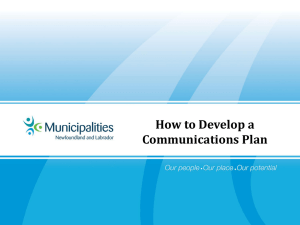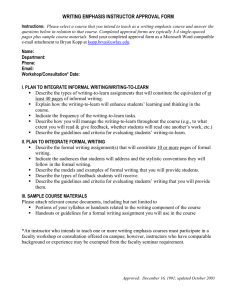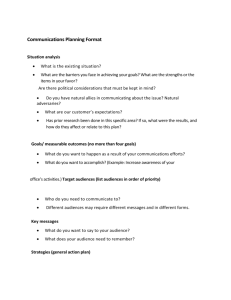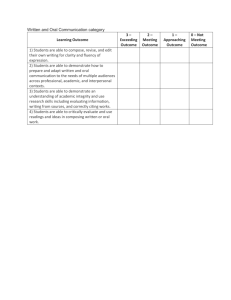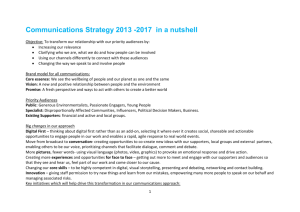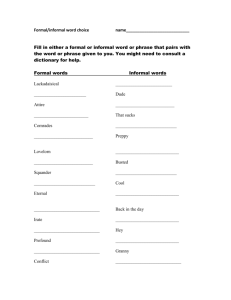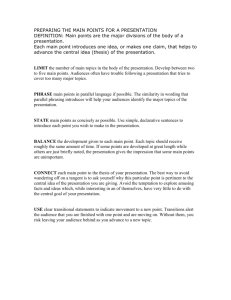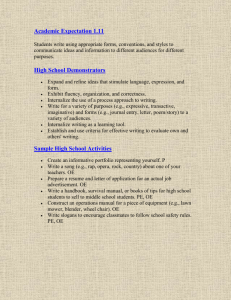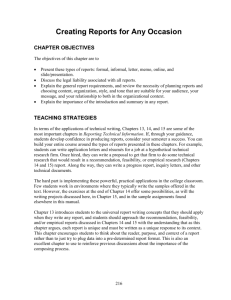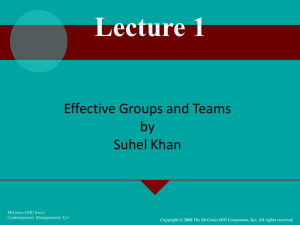Informal and Formal Writing in Writing Emphasis Courses
advertisement
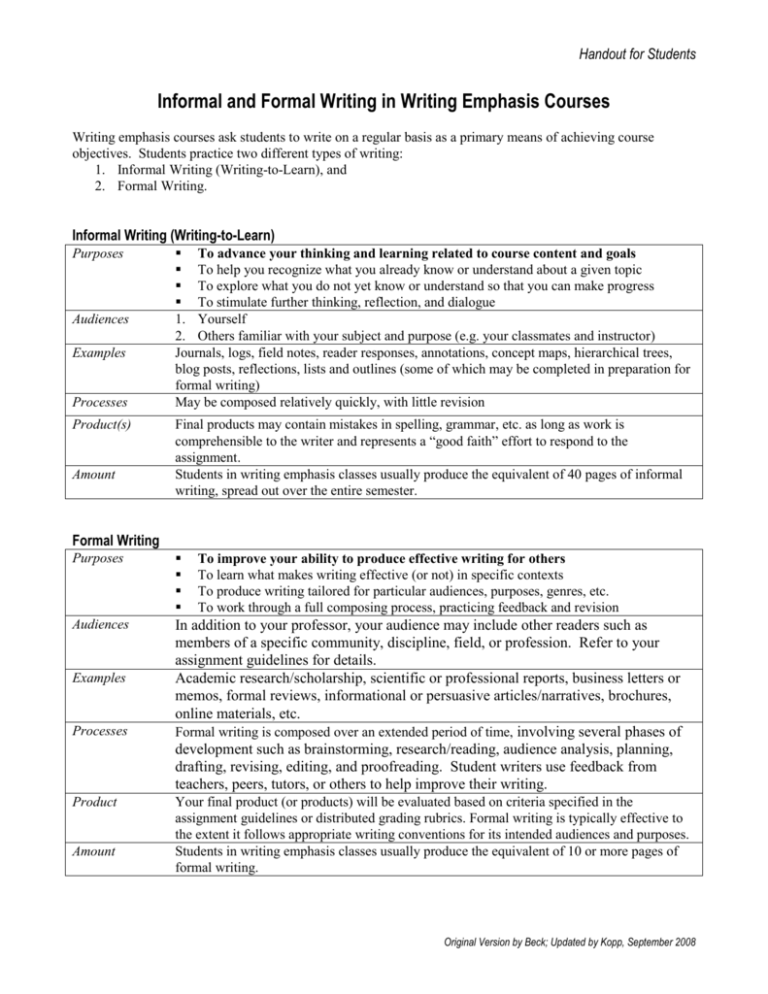
Handout for Students Informal and Formal Writing in Writing Emphasis Courses Writing emphasis courses ask students to write on a regular basis as a primary means of achieving course objectives. Students practice two different types of writing: 1. Informal Writing (Writing-to-Learn), and 2. Formal Writing. Informal Writing (Writing-to-Learn) Purposes Audiences Examples Processes Product(s) Amount To advance your thinking and learning related to course content and goals To help you recognize what you already know or understand about a given topic To explore what you do not yet know or understand so that you can make progress To stimulate further thinking, reflection, and dialogue 1. Yourself 2. Others familiar with your subject and purpose (e.g. your classmates and instructor) Journals, logs, field notes, reader responses, annotations, concept maps, hierarchical trees, blog posts, reflections, lists and outlines (some of which may be completed in preparation for formal writing) May be composed relatively quickly, with little revision Final products may contain mistakes in spelling, grammar, etc. as long as work is comprehensible to the writer and represents a “good faith” effort to respond to the assignment. Students in writing emphasis classes usually produce the equivalent of 40 pages of informal writing, spread out over the entire semester. Formal Writing Purposes Audiences In addition to your professor, your audience may include other readers such as members of a specific community, discipline, field, or profession. Refer to your assignment guidelines for details. Academic research/scholarship, scientific or professional reports, business letters or memos, formal reviews, informational or persuasive articles/narratives, brochures, online materials, etc. Formal writing is composed over an extended period of time, involving several phases of development such as brainstorming, research/reading, audience analysis, planning, drafting, revising, editing, and proofreading. Student writers use feedback from teachers, peers, tutors, or others to help improve their writing. Examples Processes Product Amount To improve your ability to produce effective writing for others To learn what makes writing effective (or not) in specific contexts To produce writing tailored for particular audiences, purposes, genres, etc. To work through a full composing process, practicing feedback and revision Your final product (or products) will be evaluated based on criteria specified in the assignment guidelines or distributed grading rubrics. Formal writing is typically effective to the extent it follows appropriate writing conventions for its intended audiences and purposes. Students in writing emphasis classes usually produce the equivalent of 10 or more pages of formal writing. Original Version by Beck; Updated by Kopp, September 2008

